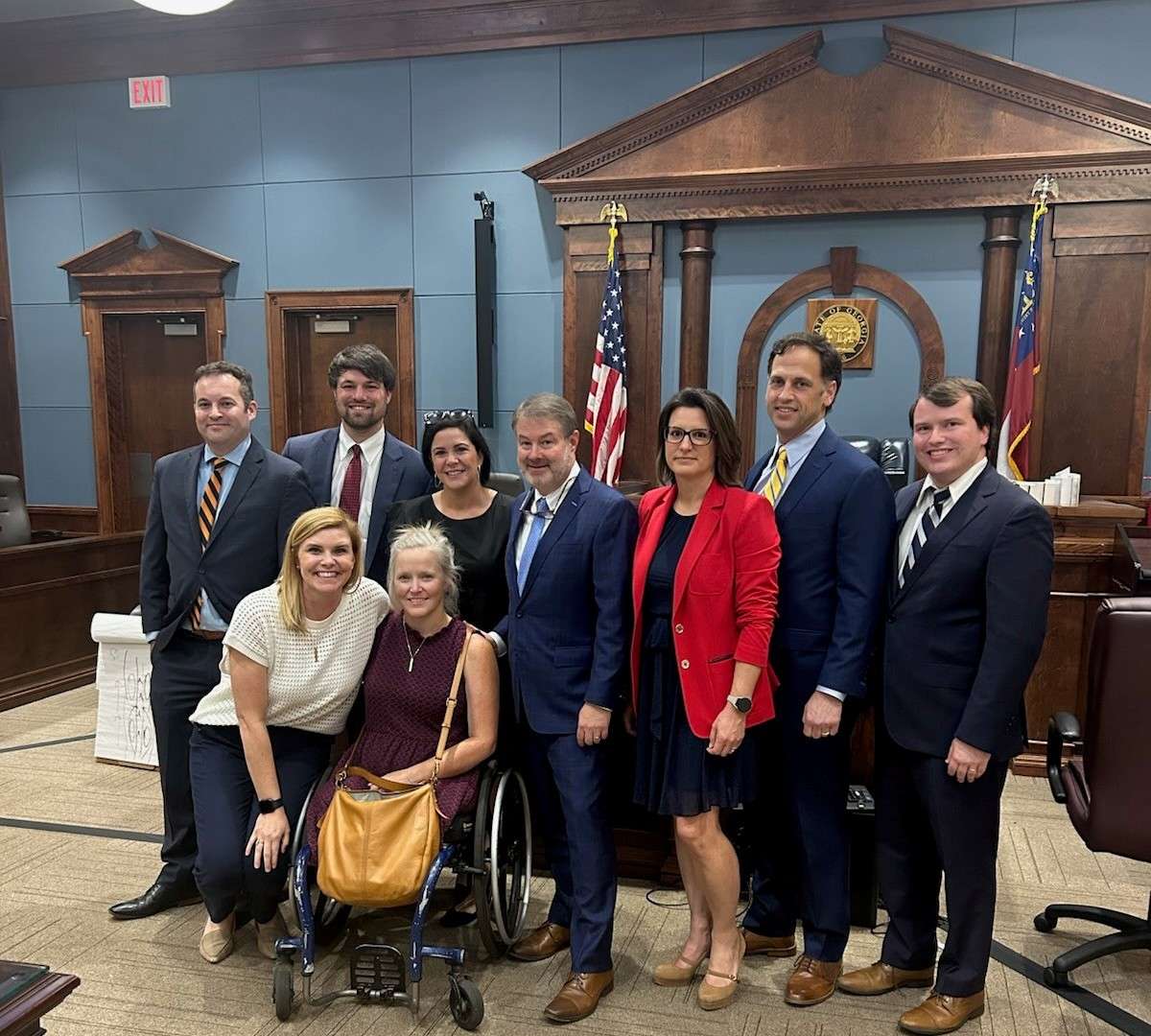Georgia’s legal landscape for personal injury claims is poised to change with the passage of Senate Bill 68 (SB68). SB 68 was signed into law on April 21, 2025. SB68 introduces significant reforms to how damages are awarded and how trials are conducted in civil lawsuits, largely aimed exclusively at personal injury cases. It is a sad day for all who believe in the validity of the US Constitution and the access to justice for our citizens. In short, the legislature has made a choice to limit the Constitutional rights of citizens in an effort to bolster their campaign coffers by protecting insurance companies.
The arguments of supporters that SB68 will curb excessive litigation and stabilize insurance costs is misguided at a minimum and altogether misleading as the nexus between the alleged goals and the language of the legislation is wholly and completely absent. The public has been misled, but most won’t know the full extent of how they’ve been harmed until it is too late. It is too late. Here’s what you need to know about how SB68 may affect your injury claim in Georgia.
Key Changes in SB68
Limitations on Noneconomic Damage Arguments
One of the most notable changes under SB68 is the restriction on how attorneys can present noneconomic damage claims. Noneconomic damage includes intangible losses such as pain and suffering, emotional distress, and loss of enjoyment of life. Previously, attorneys could suggest a specific dollar amount for these damages at any point during a trial. Under SB68, attorneys would be prohibited from making such suggestions until after all evidence has been presented.
The alleged intent behind this change is to prevent “anchoring,” a strategy where the plaintiff’s attorney provides guidance to the jury as to an appropriate damages figure. Jurors often struggle to assign value to noneconomic damages without guidance, which can lead to inconsistent and inadequate compensation for the injured party. Insurers have convinced legislators that the public is too ignorant to reach their own conclusions with appropriate guidance. As a result, the insurers and legislators want the government to dictate that jurors cannot be provided that guidance to better protect the assets of insurance companies.
Bifurcation of Trials: Separating Liability and Damages
Another major reform is the option for insurance defense attorneys to bifurcate the trial; splitting it into two or more separate phases. The first phase determines liability, meaning the jury decides whether the defendant is responsible for the injury. Only if liability is established does the following phases take place, during which damages are assessed.
Proponents of SB68 (read “insurers”) believe this approach ensures that jurors focus solely on the facts of the case without being influenced by potential financial consequences. Placed into proper perspective, however, this will lead to longer trials and substantially increased legal costs, in the hopes of discouraging injury victims from pursuing claims and ultimately limiting the net result of a verdict. Not only will this substantially increase the overall costs for those injured, and reducing their corresponding compensation, it will create substantial corresponding problems with evidence presentation.
Now, witnesses will have to be called more than once, remaining under subpoena or interrupting their lives, and families will often have to re-live the experiences of horrible circumstances more than once, but they’ll also have to endure the stressful elements of providing testimony more than once. Insurers have used blissfully ignorant legislators to make the costs of litigation out of the reach of the average citizen while the added expense to multi-billion dollar insurance companies is negligible. Moreover, insurers and their purchased legislators hope to make trials so uncomfortable for victims, they simply choose to go away.
Changes to Medical Expense Compensation
SB68 also impacts how medical expenses are calculated in injury claims. Previously, plaintiffs could present the total amount billed by healthcare providers as evidence of their economic damages. Under the new law, compensation is limited to the actual amounts paid and/or outstanding medical expenses.
This change is meant to address concerns about “phantom damages,” where insurers and negotiated medical discounts result in claimants receiving more than what was actually paid. However, for injury victims, this shift may reduce recoverable damages, particularly if they lack comprehensive insurance or face high out-of-pocket costs. Some damages, such as medical care expenses and long term loss of earning capacity, can compound over years and are often inadequately accounted for by defendants and jurors alike.
Sadly, this approach ignores a number of issues that will ultimately further harm victims while helping insurers. First, there was never any such thing as “phantom damages.” Not only could medical providers seek payment for the balance of their bills, exposing the victim to additional litigation, this entire process ignores the root issue: falsely inflated bills of providers in an effort to bolster the payment they receive from health insurers. If the government wants to force down the payment for the services, maybe they should start with the accepted, systemic fraud replete within the system of providers increasing their bills so the “reduction” by health insurers still make them a profit.
Additionally, there is no guarantee any alleged “health insurance” will be available in the future. Victims are often injured to the extent their work life is substantially reduced, but their care does not end. When an employer provides health coverage, but ultimately that coverage is lost when the victim can no longer work, and a jury has only been authorized to award what an insurer will pay, the victim is victimized yet again.
One tactic forced upon victims is the decision to refrain from claiming medical expenses, but that doesn’t necessarily stop the insurer from seeking reimbursement after a judgment. In short, the purported rationale of addressing “phantom damages” is tantamount to using a sledgehammer to kill a fly.
How SB68 Affects Personal Injury Plaintiffs
For those pursuing injury claims, SB68 presents significant challenges both procedurally and financially. Noneconomic damages have become harder to quantify, trials will take longer, and medical expense awards will be lower than before. These changes will particularly impact individuals with severe injuries who rely on full compensation to cover long-term pain and suffering. SB68 is a travesty of justice trampling the Constitutional right of victims to have a fair trial.
The Impact of SB68 Moving Forward
SB68 represents a significant shift in Georgia’s tort law. While the bill the purported design of the bill was alleged to prevent excessive litigation and keep insurance costs in check, that rationale is a complete and total fabrication. This bill has one purpose: deny injury victims fair compensation in order to allow insurers to keep more of their money. Premiums will NOT go down as a result of SB68, but insurer profits will skyrocket.
Contact Us
If you or a loved one have been injured, understanding these new legal changes is crucial. Consulting with an experienced personal injury attorney can help navigate these complexities and ensure your rights are protected.



